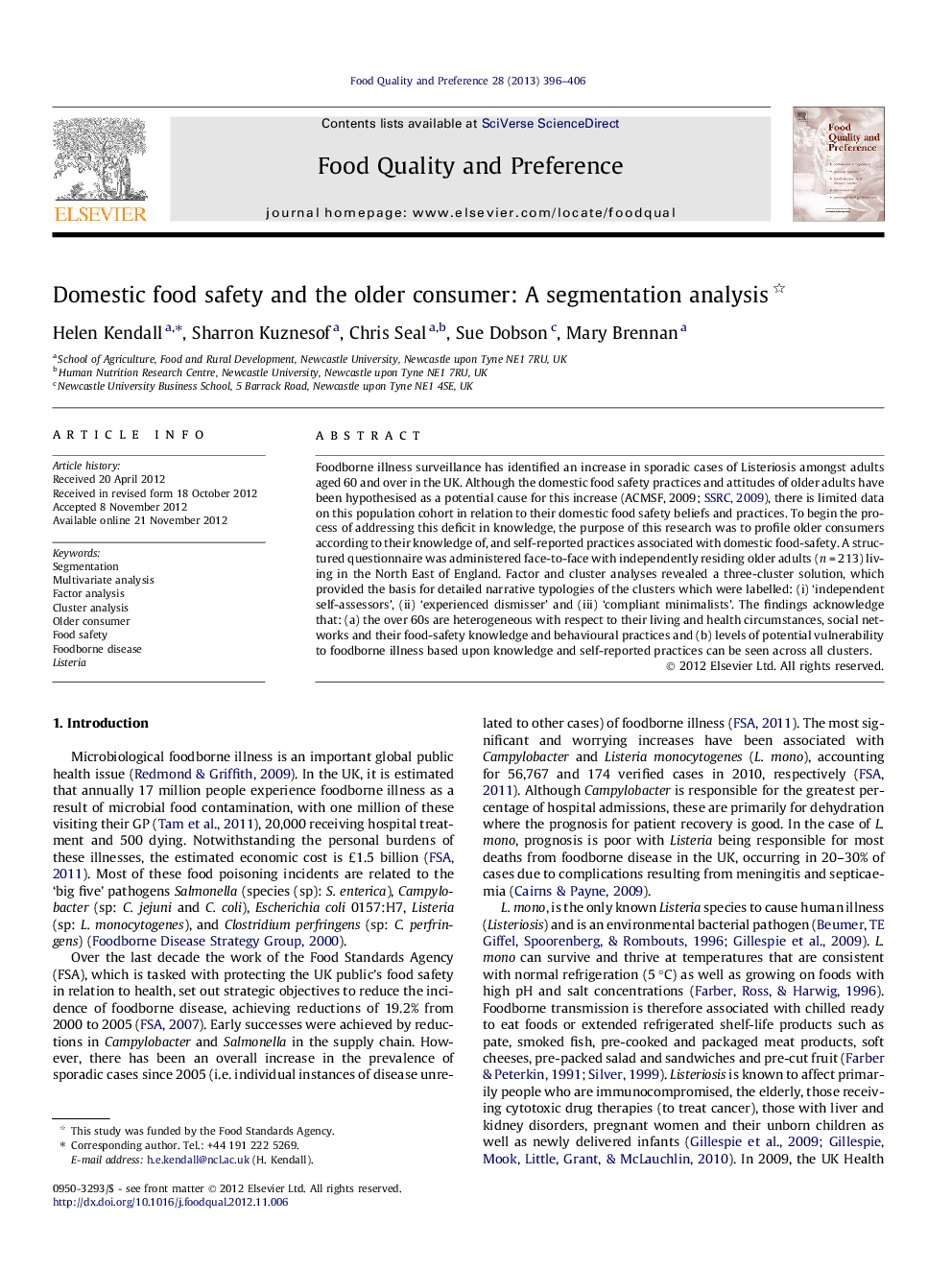| Article ID | Journal | Published Year | Pages | File Type |
|---|---|---|---|---|
| 4317393 | Food Quality and Preference | 2013 | 11 Pages |
Foodborne illness surveillance has identified an increase in sporadic cases of Listeriosis amongst adults aged 60 and over in the UK. Although the domestic food safety practices and attitudes of older adults have been hypothesised as a potential cause for this increase (ACMSF, 2009; SSRC, 2009), there is limited data on this population cohort in relation to their domestic food safety beliefs and practices. To begin the process of addressing this deficit in knowledge, the purpose of this research was to profile older consumers according to their knowledge of, and self-reported practices associated with domestic food-safety. A structured questionnaire was administered face-to-face with independently residing older adults (n = 213) living in the North East of England. Factor and cluster analyses revealed a three-cluster solution, which provided the basis for detailed narrative typologies of the clusters which were labelled: (i) ‘independent self-assessors’, (ii) ‘experienced dismisser’ and (iii) ‘compliant minimalists’. The findings acknowledge that: (a) the over 60s are heterogeneous with respect to their living and health circumstances, social networks and their food-safety knowledge and behavioural practices and (b) levels of potential vulnerability to foodborne illness based upon knowledge and self-reported practices can be seen across all clusters.
► Older consumers were segmented in terms of food safety attitudes and behaviours. ► Three clusters were identified: ‘independent self-assessor’, ‘experienced dismisser’ and ‘compliant minimalist’. ► All clusters demonstrated ‘risk’ and susceptibility to food borne illness. ► Considerable diversity exists amongst the over 60s in relation to food-safety best-practice.
